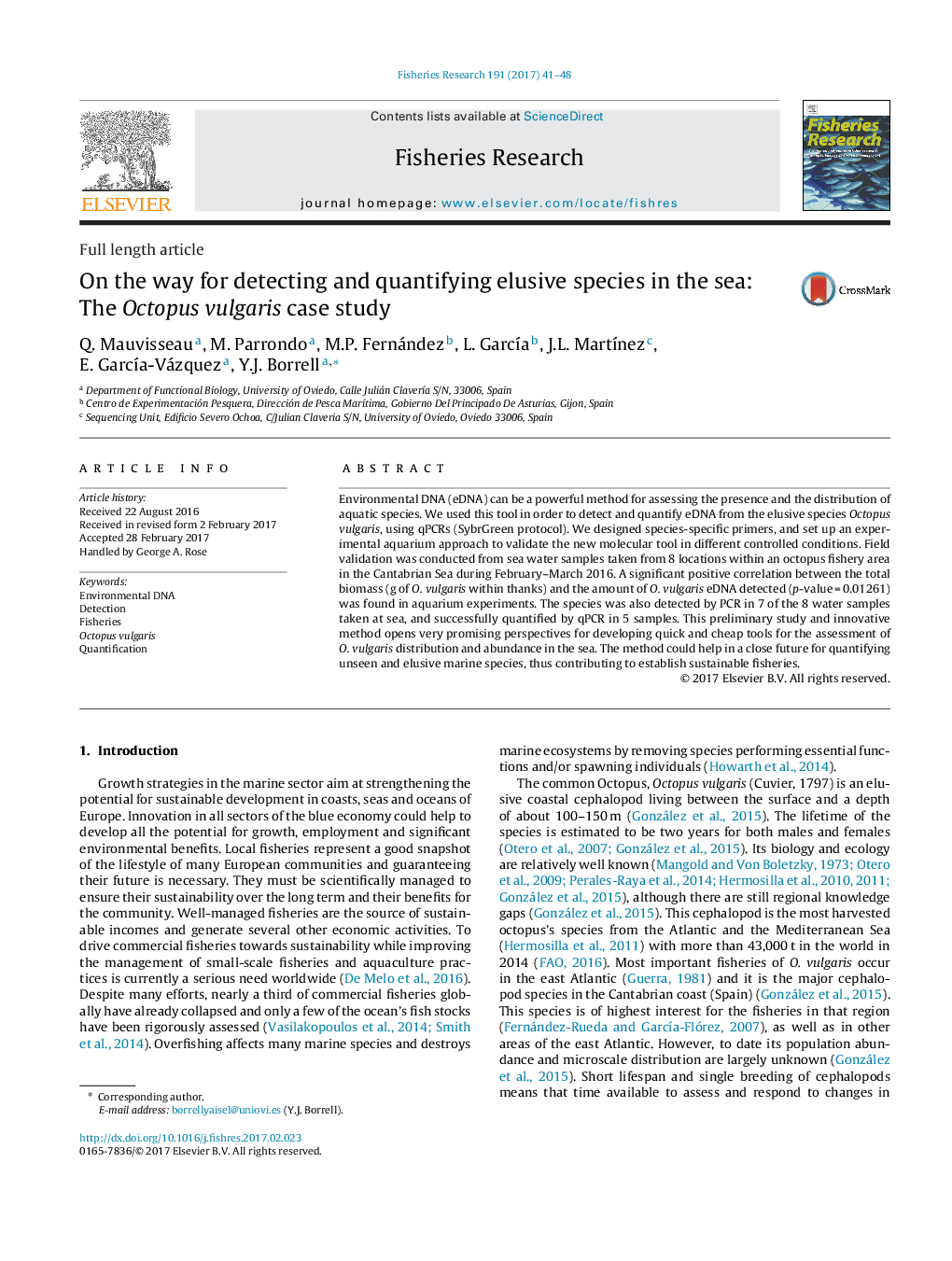| Article ID | Journal | Published Year | Pages | File Type |
|---|---|---|---|---|
| 5765615 | Fisheries Research | 2017 | 8 Pages |
Abstract
Environmental DNA (eDNA) can be a powerful method for assessing the presence and the distribution of aquatic species. We used this tool in order to detect and quantify eDNA from the elusive species Octopus vulgaris, using qPCRs (SybrGreen protocol). We designed species-specific primers, and set up an experimental aquarium approach to validate the new molecular tool in different controlled conditions. Field validation was conducted from sea water samples taken from 8 locations within an octopus fishery area in the Cantabrian Sea during February-March 2016. A significant positive correlation between the total biomass (g of O. vulgaris within thanks) and the amount of O. vulgaris eDNA detected (p-value = 0.01261) was found in aquarium experiments. The species was also detected by PCR in 7 of the 8 water samples taken at sea, and successfully quantified by qPCR in 5 samples. This preliminary study and innovative method opens very promising perspectives for developing quick and cheap tools for the assessment of O. vulgaris distribution and abundance in the sea. The method could help in a close future for quantifying unseen and elusive marine species, thus contributing to establish sustainable fisheries.
Related Topics
Life Sciences
Agricultural and Biological Sciences
Aquatic Science
Authors
Q. Mauvisseau, M. Parrondo, M.P. Fernández, L. GarcÃa, J.L. MartÃnez, E. GarcÃa-Vázquez, Y.J. Borrell,
